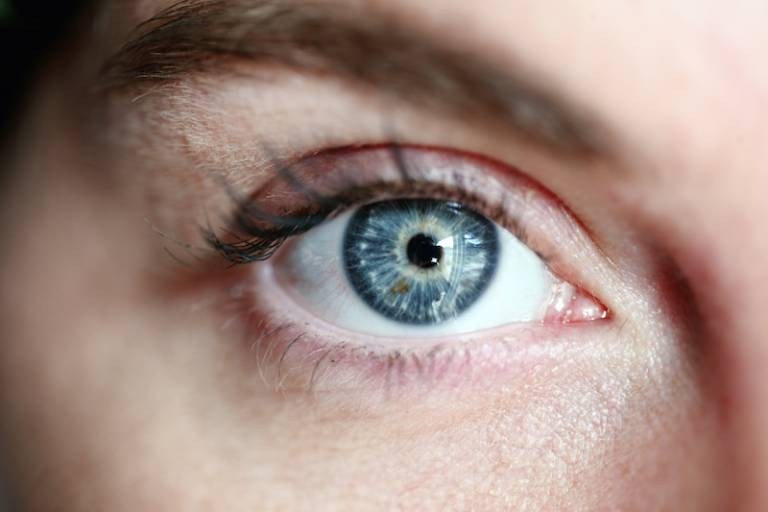Two people regain sight after pioneering eye therapy
Making the blind see - last year two people, whose sight had deteriorated due to age-related macular degeneration (AMD), were able to see the world again, following ground-breaking stem cell-based therapy pioneered at UCL.

AMD is the most common form of age-related blindness in the UK, affecting 600,000 to 700,000 people. The two patients, a woman in her early 60s and a man in his early 80s, had the severe form of the condition (wet macular degeneration) and declining vision.
Discovered by Professor Pete Coffey (UCL Institute of Ophthalmology), the treatment effectively treats the disease, allowing people to read and see faces. Due to his valuable contribution to this field, Pete has been named in May 2019 as one of the Nation’s Lifesavers by Universities UK. This honour recognises the top 100 individuals or groups based in universities across the UK whose work is saving lives and making a life-changing difference to our health and wellbeing.
Pete has co-led the London Project to Cure Blindness since 2007 in collaboration with Professor Lyndon da Cruz (UCL Institute of Ophthalmology), who is also a retinal surgeon at Moorfields Eye Hospital.
The team’s ground-breaking procedure involves implanting a “patch” of stem cells over the back of the eye. To develop the therapy, Pete and his team created the cells, perfected a new surgical technique and new surgical tools to implant them, and pioneered imaging techniques to monitor their progress once in the eye.
Links
- Professor Pete Coffey's academic profile
- UCL Institute of Ophthalmology
- The London Project to Cure Blindness
- London Project to Cure Blindness
- Patients regain sight after being first to receive retinal tissue engineered from stem cells
- Eye treatment pioneer named among UK’s 100 national lifesavers
Image
- Credit: Sharon McCutcheon, Source: Pixabay
 Close
Close

